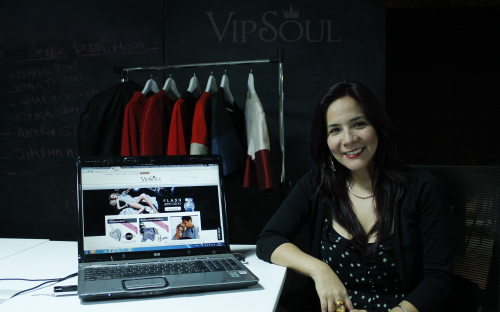The mother and entrepreneur, and EMBA, is helping to address a gender divide and is dispelling stereotypes. Leading female figures have crafted sizable companies: Anita Roddick’s Body Shop was sold to L’Oréal for £652 million in 2006; Sara Blakely’s Spanx, the underwear group, is valued at more than a billion dollars. But the list is short.
Talia is part of a minority. She launched her venture this year after an EMBA at Cass Business School in London, the city in which Do It For Mummy is based, after having her first child. “I've worked at large corporates but I really missed the fast-paced, exciting and challenging nature of the start-up,” she says.
Talia hit on the idea for Do It For Mummy last year. She needed sleep and lactation consultants to provide treatment to her son at home, but could not find the right qualified specialists.
Childcare put her plans to start-up on hold. But when her son was a little older, it was pedal to the mettle. “I knew that I wanted to bring the idea to reality,” Talia says.
A female start-up culture is certainly blossoming at business schools and beyond. As many as 40% of male and female students in EMBA classes are launching start-ups, say business schools.
There have been successes for female MBAs. Marketing firm Wildfire, founded by a Harvard Business School MBA, was acquired by Google in 2012 for a reported $300 million. Rent the Runway, a dress rental service founded by two Harvard MBAs, was valued at $220 million last year.
More than 9.1 million women-owned businesses operated in the US last year, up from 8.6 million in 2013, according to a report commissioned by American Express, the financial services group.
But when it comes to total female entrepreneurship, the figures are telling. Official UK government statistics show that just 18% of SMEs in the UK are female-led. According to the latest Census Bureau statistics, women-owned businesses account for only 28.7% of all businesses in the US.
This reflects a broader pattern. Just five of the FTSE 100 groups on the UK stock exchange are headed by a woman. In the US, just 23 of the Fortune 500 companies have female chief executives.
But business schools can help, believes Cristina Sassot, MBA admissions director at ESADE Business School in Spain. She says schools can assist through facilities in the admissions process, with grants, scholarships and accommodation.
Still, access to start-up finance remains a hurdle. Just 2.7% of all the venture capital finance raised in the US between 2011 and 2013 went to companies led by women, according to a study by Babson College, a US business school that specialises in entrepreneurial training.
Successful founders like Sara at Spanx have bootstrapped their ventures, and female-focused start-up incubators and events like those run by Women 2.0 and Ladies Who Launch, help female entrepreneurs build up investor networks. But experts warn more funding must be provided for start-ups to grow.
Bill Aulet, managing director of the Martin Trust Center for MIT Entrepreneurship, says a lack of finance holds back entrepreneurs from scaling companies.
A lack of female venture capitalists is also a problem, say experts. The proportion of women partners at US venture capital firms dropped from 10% in 1999 to 6% last year, according to a Babson study.
Patricia Greene, professor of entrepreneurial studies at Babson College, says: “The model for venture capital that has been in place since the 1980s simply does not work for women entrepreneurs.”
A recent high-profile sex discrimination case against Kleiner Perkins Caufield & Byers, the Silicon Valley venture capital group, has compounded these fears.
Women’s need to balance work and personal responsibilities is also cited as a factor. According to a study by Royal Bank of Scotland, “personal reasons” are the top causes of female entrepreneurs aged 25 to 34 closing down businesses.
Many founders like Talia at Do It For Mummy arrange schedules to fit around school and nursery hours, and do not raise outside investment to launch.
Faviola Palomino, an MBA graduate of top Italian business school MIP Politecnico di Milano, says that investors are looking for a “sexy start-up”, regardless of founders’ gender.
She launched her venture, VIP Soul, an online fashion and lifestyle market, in 2012 and has been approaching angel investors to raise capital. VIP Soul’s user base shot up to 20,000 after winning a competition held by Wayra, Telefónica’s start-up accelerator, in 2012, and the company has received funding from the Peruvian Government.
Part of the reason for the increase in the number of female founders, suggests Faviola, is that her generation of women is more concerned about education. “As millennials, we are more focused on our career success than our male counterparts,” she says.
London Business School MBA Elizabetta Camilleri has raised $1.3 million for her start-up SalesGossip, an online and mobile service that enables sellers to communicate their fashions and promotions to targeted customers.
She says the increase in female founders has produced an inspirational affect. “Women are also increasingly educated, career conscious, ambitious and in much more control of their choices and decisions than previous generations.”
A lack of childcare support is cited as barrier to women climbing the corporate ladder but Talia thinks the opposite is true for entrepreneurs: “Self-employment enables a more flexible work-life balance that a corporate position may not accommodate.”
This has implications for big business. Many women who have worked in corporations are drawn to start-ups because it gives them greater control.
Start-ups costs are also at an all-time low, says Margaux Pelen, executive director of the Entrepreneurship Center at HEC Paris, the French business school.
Consequently, corporate leaders are struggling to retain their most talented women, according to research by Catalyst, a non-profit women’s advocacy group.
Retaining female talent is a key challenge for corporations in addressing the gender divide, according to Anna Beninger, director of research at Catalyst. “The extent to which they can hold on to the talent they’ve trained… [and] give them the opportunities to continue to grow within the organization – that’s critical.”
The gender pay gap is also a problem. Professor Ginny Gibson, deputy dean at the UK’s Henley Business School, says: “This may explain the increase in women leaving the corporate market to enter self-employment, providing greater flexibility and control over their earning power.”
Bridging the gender divide in both the corporate and start-up worlds is seen as a way to unlock innovation.
Kerry Healey, Babson president, says: “Closing the gender gap and providing greater funding opportunities for women entrepreneurs not only makes good financial sense for venture capital firms, it also will drive new economic growth and spur innovation.”
RECAPTHA :
a0
82
04
b1







